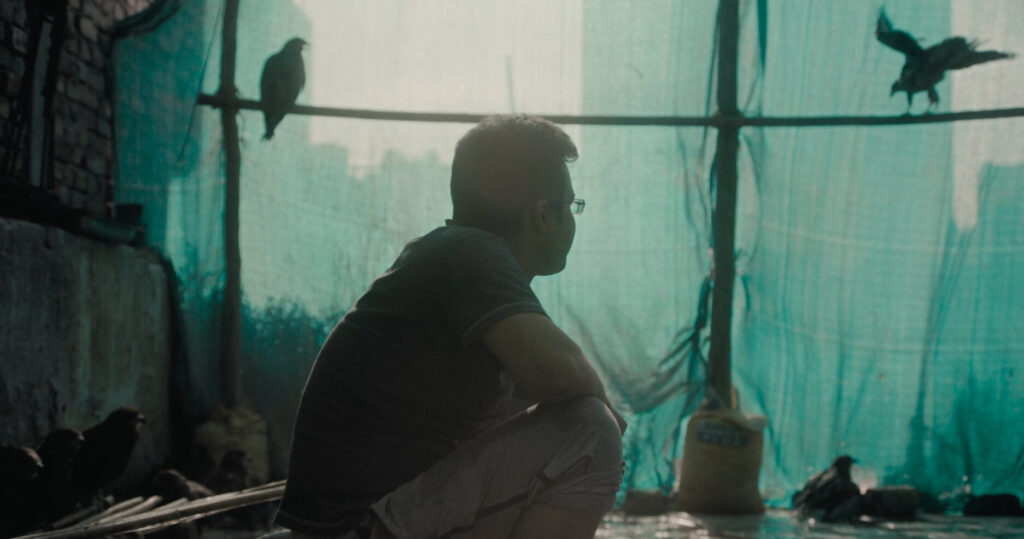At the core of filmmaking is the desire to tell a great story. Be it comedy or drama, horror, or fantasy, the filmmaker wants to take the viewer on a journey and somehow impact them along the way. Documentaries are no exception. They can motivate us, inspire us, terrify us, and educate us, all while keeping us thoroughly entertained. With the added ingredient of portraying real-life, non-fiction accounts, a good documentary can put us on the edge of our seats or open our eyes and hearts. Sometimes all at once.
10 Must-See Documentaries for Aspiring Filmmakers
The past few decades have seen some amazing growth in the world of documentary filmmaking. We’ve witnessed some incredible and heartfelt stories played out in front of our eyes. The craft is reaching new heights, and NYFA is proud to have many students, alumni, and faculty involved with the best of the best. For students and film buffs alike, these films are exemplary in every way.
Here are ten examples of must-see documentaries.
Grizzly Man (2005)
Werner Herzog has emerged as one of the most celebrated cinematographers in the field of non-fiction. Every film he makes is centered around a fascinating subject matter and highlights the most intriguing aspects of it. Grizzly Man is one of his best. Covering the captivating life and tragic death of Tim Treadwell, it tells the story of a man who chose to live among grizzly bears and how his love of nature and optimistic spirit ultimately ended his and his girlfriend’s life.
Man on Wire (2008)
This film will leave you uplifted and awestruck as it masterfully tells the Philippe Petit story. Technically impeccable, the documentary biopic will leave you speechless as you watch Petit plan, train, and execute a tightrope wire walk across the twin towers of the World Trade Center. Strategically, the horrors of 9/11 are absent to ensure not to overshadow this incredible tale.
The Square (2013)
An Oscar-nominated/Emmy-winning film, The Square offers a compelling look at the revolution inside Egypt’s borders. Egyptian-American documentarian Jehane Noujaim crafts a provoking inside view of the astonishing uprising that led to the collapse of two governments. This must-see documentary shines with incredible cinematography by NYFA Docs grad Muhammed Hamdy.
Little Richard: I Am Everything (2023)
A 2023 Grand Jury nominee, this doc directed and produced by NYFA alum Lisa Cortes (also known for Emmy winner The Apollo) follows the life and career of legendary musician Little Richard. The story focuses not only on his musical journey but on the cultural change that surrounded his rise. With a large array of archival materials, Cortes brings to life this extraordinary genius of self-expression.
Free Solo (2018)
This Oscar-winning documentary takes us on a hair-raising journey with Alex Honnold as he attempts to conquer the first free solo climb of El Capitan’s 900-meter vertical rock face in Yosemite National Park. Inspiring and thrilling, Honnold’s climb leaves no room between perfection and sudden death. In addition to taking your breath away, this heart-stopping film was edited by NYFA Docs faculty member Bob Eisenhardt.
All That Breathes (2022)

Image Source: The New York Times
Beautiful and poetic, this documentary shares the story of two brothers, Nadeem Shehzad, and Mohammed Saud, who run a bird clinic in Wazirabad, Delhi, and have saved and cured over 20,000 raptors in the last twenty years. This intense film was nominated for an Oscar in 2023 and won four IDA awards. The Los Angeles Times called it “Maybe the Most Beautifully Realized Documentary in Recent Memory.”
RBG (2018)
Shot by NYFA Docs faculty member Claudia Raschke, RBG gives the viewer inside access to the inspiring life and career of the United States Supreme Court Justice Ruth Bader Ginsburg. Her legacy propelled the advance for gender equality and she unexpectedly emerged as a pop culture icon. This excellent film was nominated for two Academy Awards in 2019 for Best Documentary Feature and Best Song (“I’ll Fight”). The legendary justice passed away shortly thereafter in September 2020.
Heroin(e) (2017)

Image Source: Netflix
In 2017, this Oscar-nominated and Emmy award-winning short documentary takes us on the journey of three women (a fire chief, a judge, and a missionary) in a fight against the opioid epidemic in West Virginia. With an overdose rate of 10 times the national average, the state faces an ongoing crisis, and Peabody Award-winning filmmaker Elaine McMillion Sheldon shows us an enlightening depiction of hope for the future. One of our most gripping must-see documentaries, this film is masterfully edited by NYFA Docs faculty member, Kristen Nutile.
China Frame By Frame (2023)
NYFA faculty member and Emmy Award-winning filmmaker Bill Einreinhofer reflects on his time in China and the dramatic changes he witnessed over the course of 30 years. Available on PBS on April 2023, this beautiful documentary includes rare historic footage and an incredible personal glimpse of China, its culture, history, and people. Einreinhofer explains, “Sometimes it’s difficult to put modern Chinese history into words, so I am relying on the pictures.”
Shirampari (2022)
Directed by NYFA grad Lucia Flórez and produced by NYFA grad Chemi Pérez, Shimpari: Legacies Of The River was an official selection of Sundance 2023. The film is set in the heart of the Amazon and follows a young Asheninka boy who must face his fears and catch a giant catfish, signaling his own journey into manhood. The documentary was filmed in a verité style in the native tongue of Asheninka and shot in Yurua.
Learn to Make Your Own Documentaries at NYFA
Tell your own captivating stories in one of our documentary filmmaking programs. Hands-on and intensive, NYFA documentary students learn the fundamentals of non-fiction narrative storytelling from industry professionals. Learn more and request more information from NYFA today!